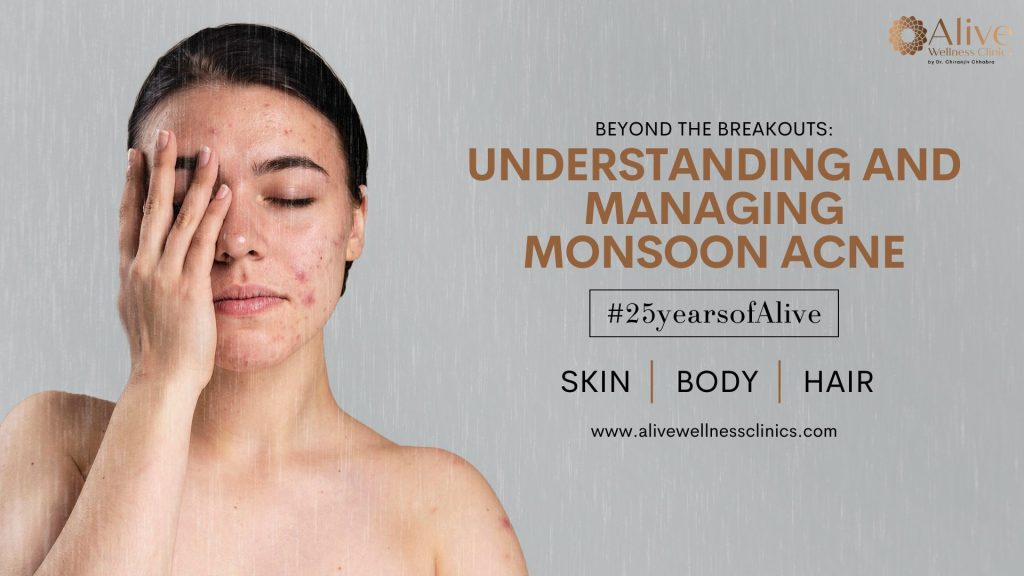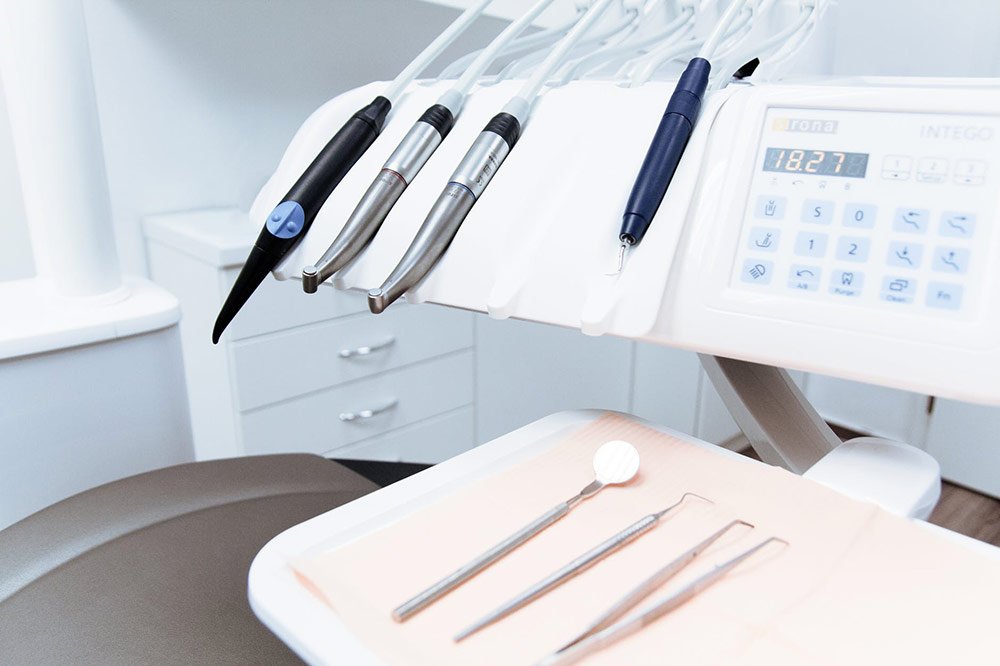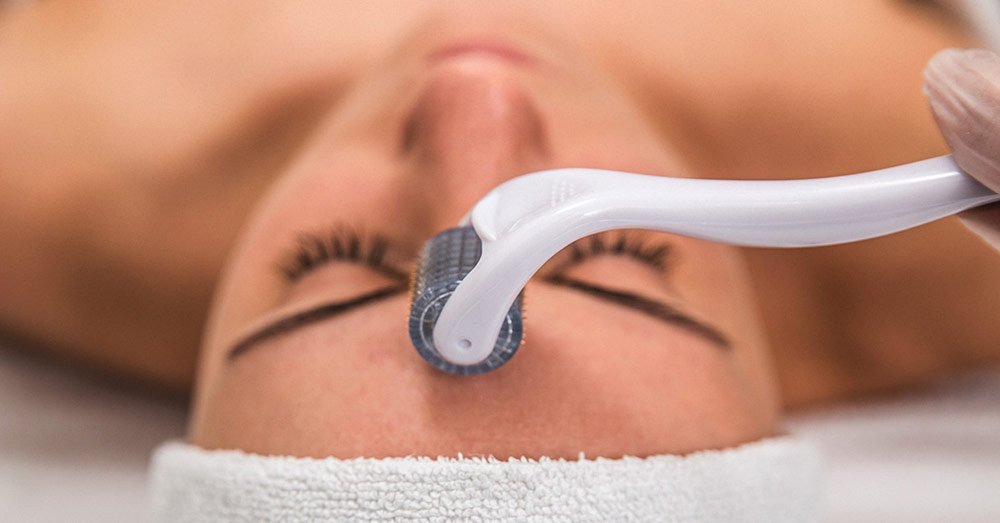Add Your Heading Text Here
We can romanticise the rains all we want, but there’s no avoiding the excess humidity, which leads to increased oiliness and acne on the face.
Random breakouts are likely to occur frequently, regardless of skin type, due to clogged pores and heightened exposure to pollution.
Individuals with oily skin, Diabetes, or sensitive skin might find this time particularly challenging.
These skin types are more prone to face acne breakouts, bacterial infections, fungal infections, and allergies during this period.
But there are specific tips and treatments to get over your monsoon acne. Read the article to learn all about them.
Understanding monsoon acne
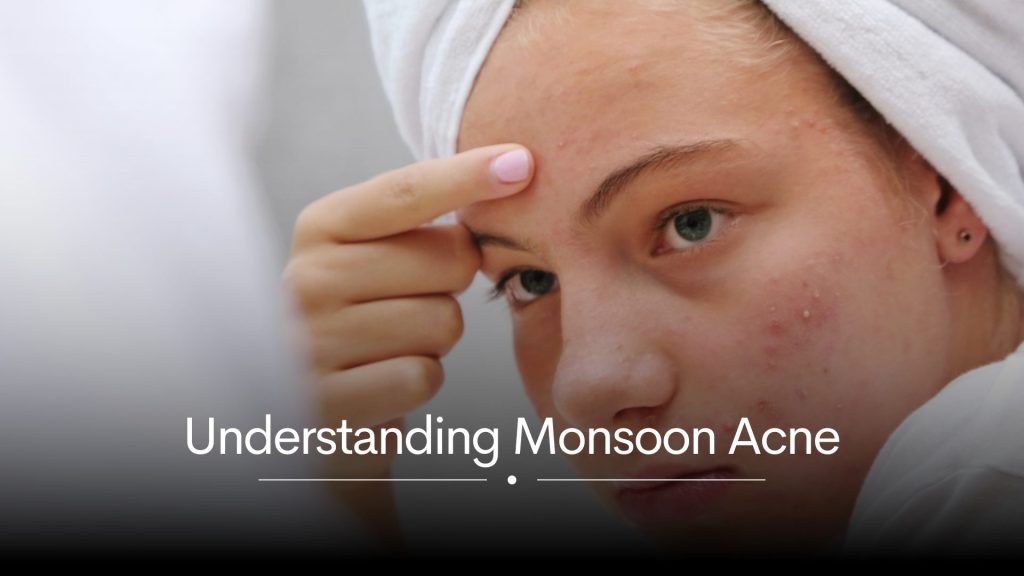
Monsoon acne refers to outbreaks and skin issues during the rainy season.
The appearance of pimples, blackheads, whiteheads, and skin inflammation characterises this type of acne.
The environmental conditions and elements present during the monsoon season often contribute to the development of monsoon acne.
During the monsoon, humidity levels rise significantly, leading to excessive sweating and increased skin sebum (oil) production.
This combination of sweat, oil, and bacteria can clog pores, resulting in acne.
Additionally, pollution, dust, and allergens tend to accumulate on the skin during the rainy season, further irritating the skin and contributing to acne breakouts.
Fungal infections, such as pityrosporum folliculitis, can also impact monsoon acne.
This condition occurs when yeast overgrowth on the skin causes itchy, acne-like pimples.
The triggers and severity of monsoon acne can vary from person to person. While some individuals may experience mild breakouts, others may suffer from more severe acne flare-ups during this period.
Professional treatments for monsoon acne
Following are some of the proven treatments when it comes to monsoon acne,
Chemical peels
Chemical peels involve applying a solution to the skin, which causes the top layer to peel off, revealing smoother, clearer skin underneath.
Dermatologists usually perform them and can help reduce acne and acne scars.
Laser therapy
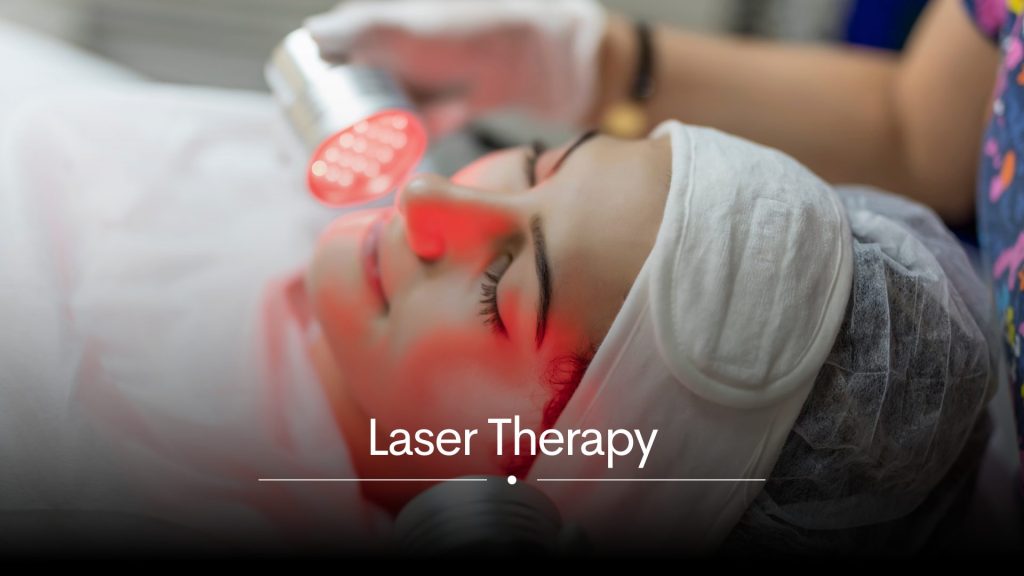
Laser treatments target and reduce acne-causing bacteria and inflammation.
Different types of lasers can also help reduce acne scars and improve skin texture.
Extraction
Professional extraction involves safely removing blackheads and whiteheads.
This should be done by a trained professional to avoid skin damage and scarring.
Tips for monsoon acne
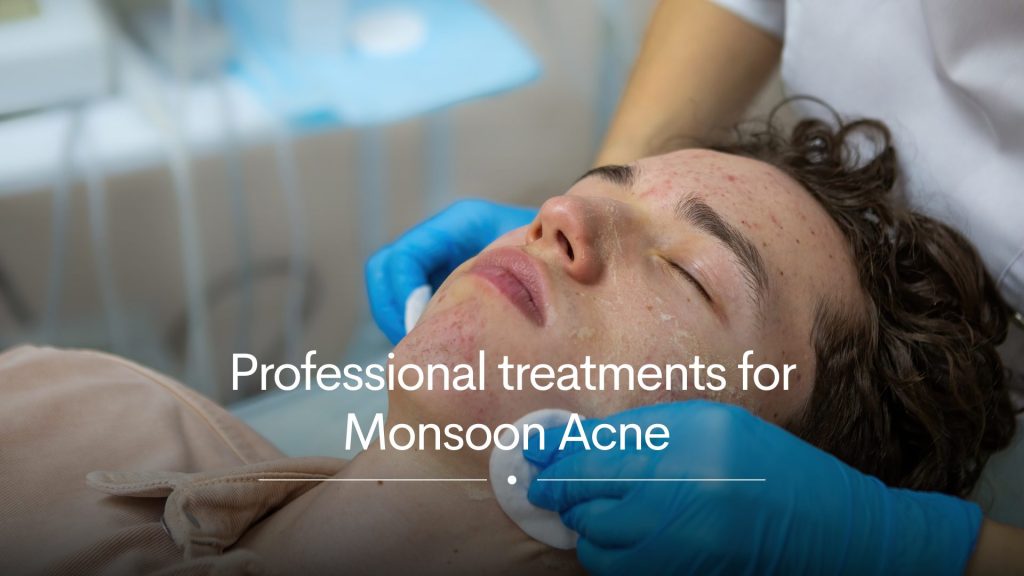
If you are looking for practical solutions, then below are some of the listed options for the same,
Exfoliate
Exfoliate your skin once or twice a week to get rid of dead skin cells and unclog pores.
Choose a gentle exfoliator containing fruit enzymes or salicylic acid as the active ingredients to effectively remove debris and prevent acne from forming.
Cleaning
Cleanse your face twice a day with a gentle, pH-balanced cleanser.
This will remove excess oil, dirt, and pollutants without stripping the skin of its natural moisture. Pat your face with a washed and dry towel.
Toning
After cleansing, apply a gentle toner to balance the skin’s pH level and remove any remaining impurities.
Choose toners that contain acne-fighting ingredients like witch hazel or tea tree oil.
Sun protection
Before leaving your house, use a broad-spectrum sunscreen with an SPF of at least 30, regardless of the weather.
Rain and clouds do not fully protect you from UV rays. To avoid clogging pores, use oil-free or gel-based sunscreens.
Spot treatment
To target and treat individual pimples, use a spot treatment containing ingredients like Benzoyl Peroxide or Salicylic acid.
Apply the treatment to the affected areas, taking care not to over-apply to avoid drying out the skin.
Hydration & diet
Keep yourself hydrated throughout the day by drinking ample amounts of water.
Maintain a healthy diet that includes fruits, green vegetables, whole grains, and lean proteins, which can contribute to good skin health.
Limit consumption of oily and processed foods, as they can exacerbate acne breakouts.
Book your consultation with Alive Wellness Clinics to know how to get the best treatment for your skin.
Conclusion
Monsoon acne is a common concern due to increased humidity and clogged pores.
While some people experience mild breakouts, others may require dermatology treatments in Delhi like chemical peels or laser therapy.
To manage monsoon acne at home, focus on a gentle skincare routine that includes exfoliation, cleansing, toning, and hydration.
Remember, sun protection and a healthy diet are important to keep your skin clear and healthy throughout the rainy season.

